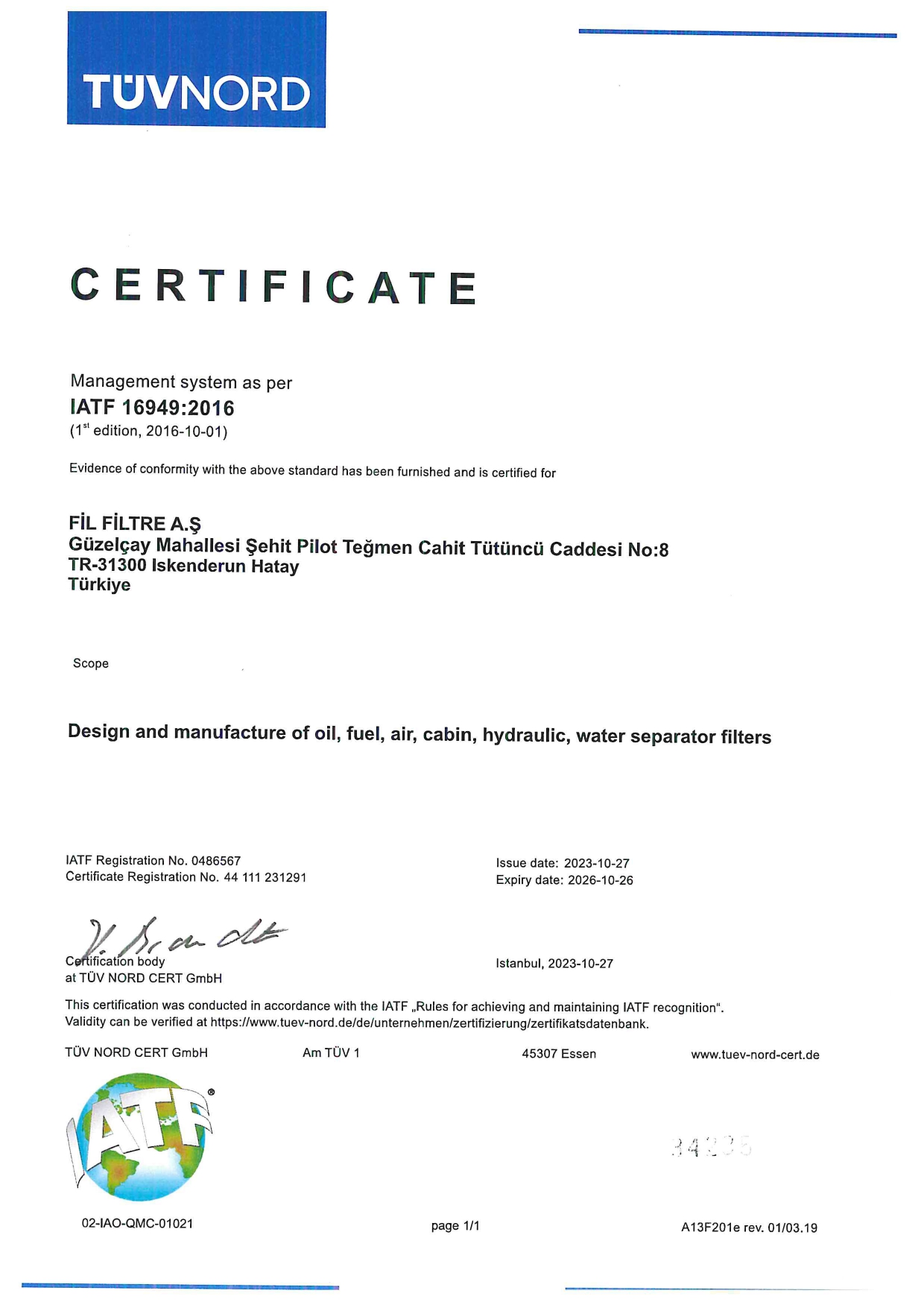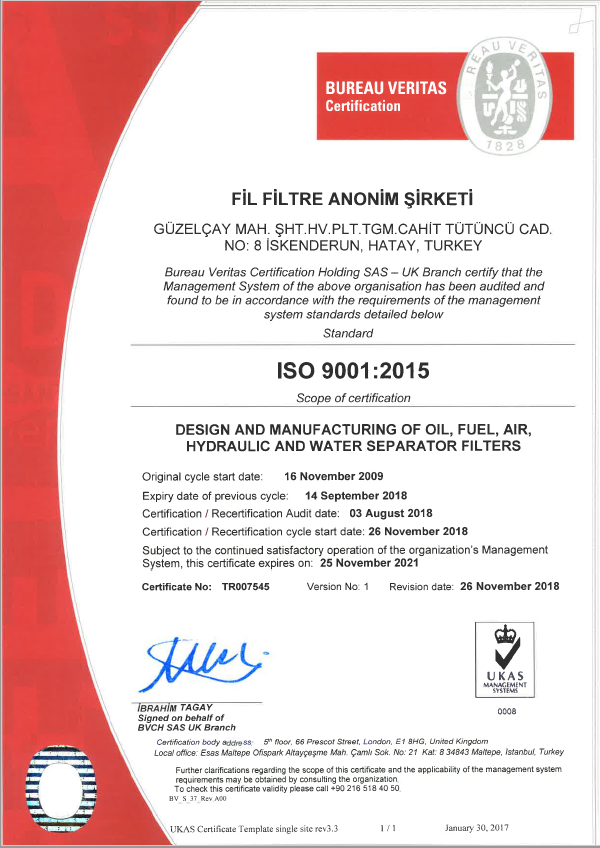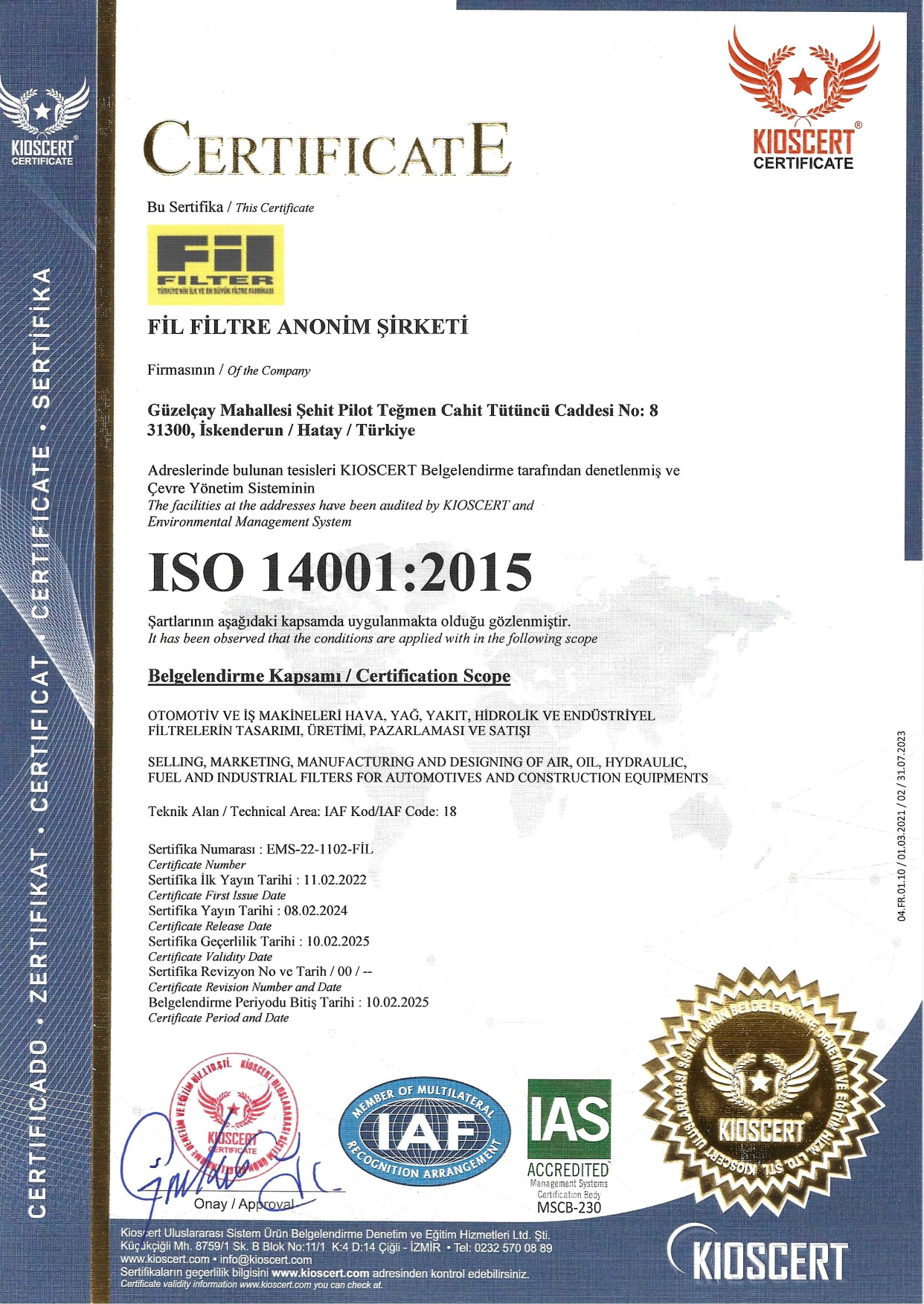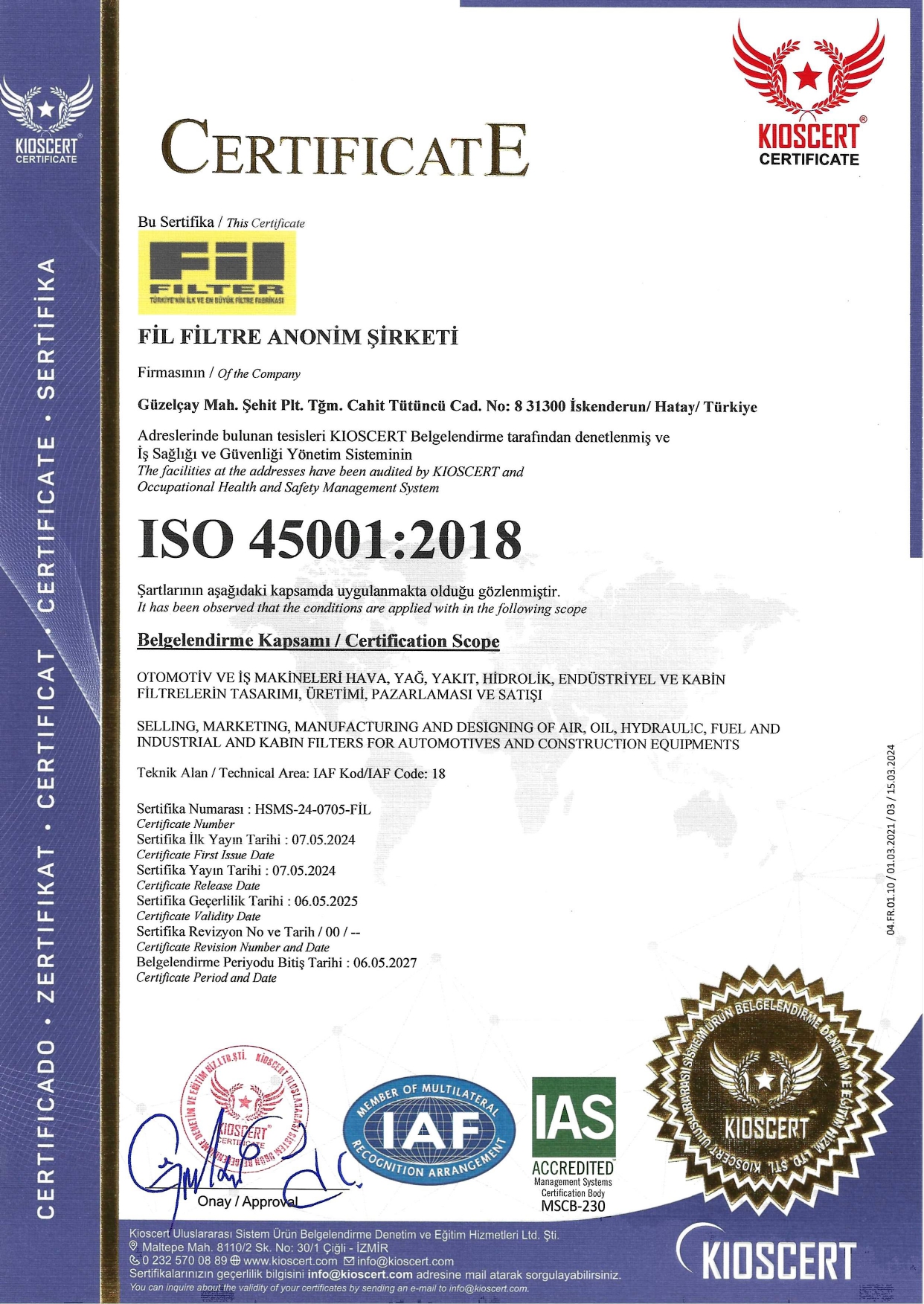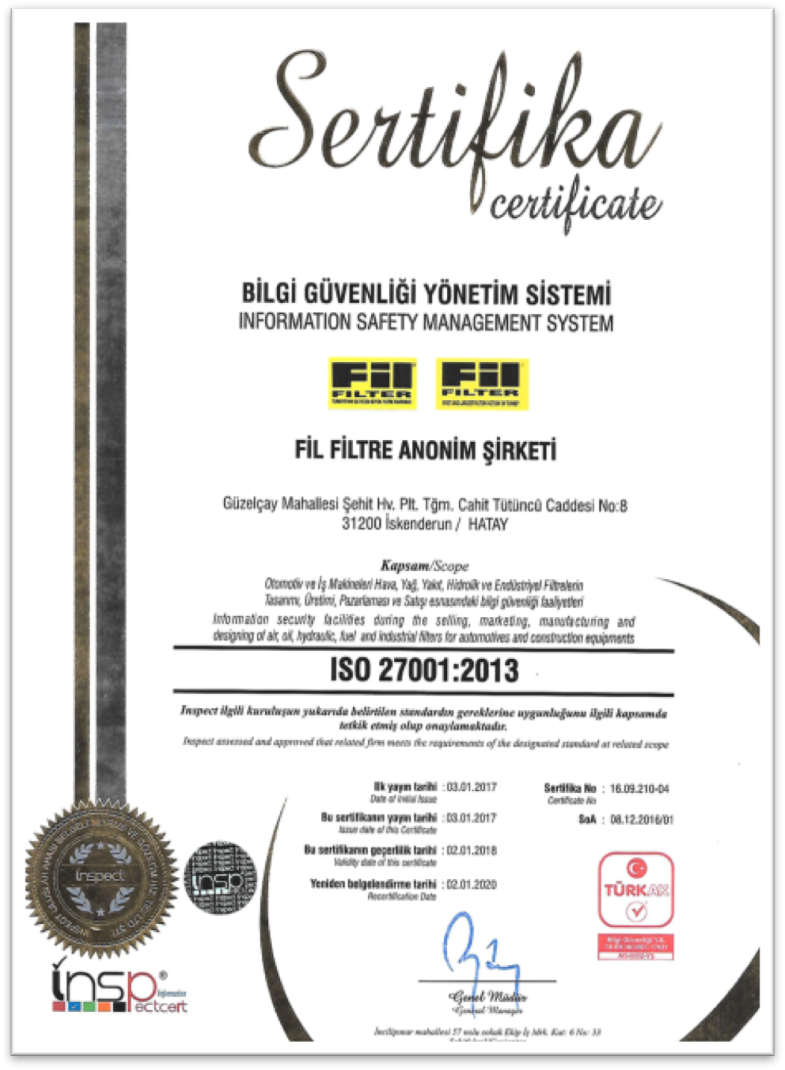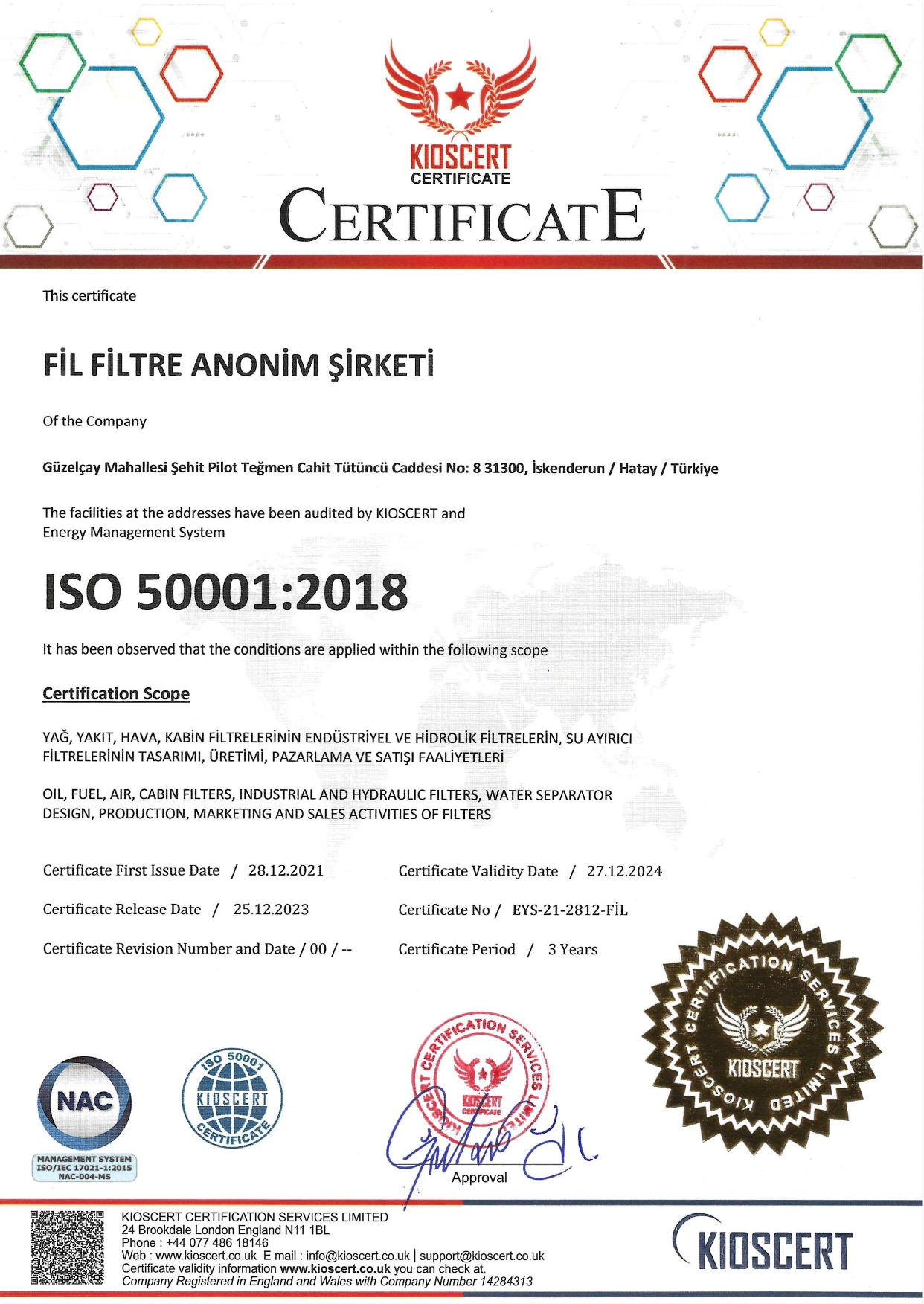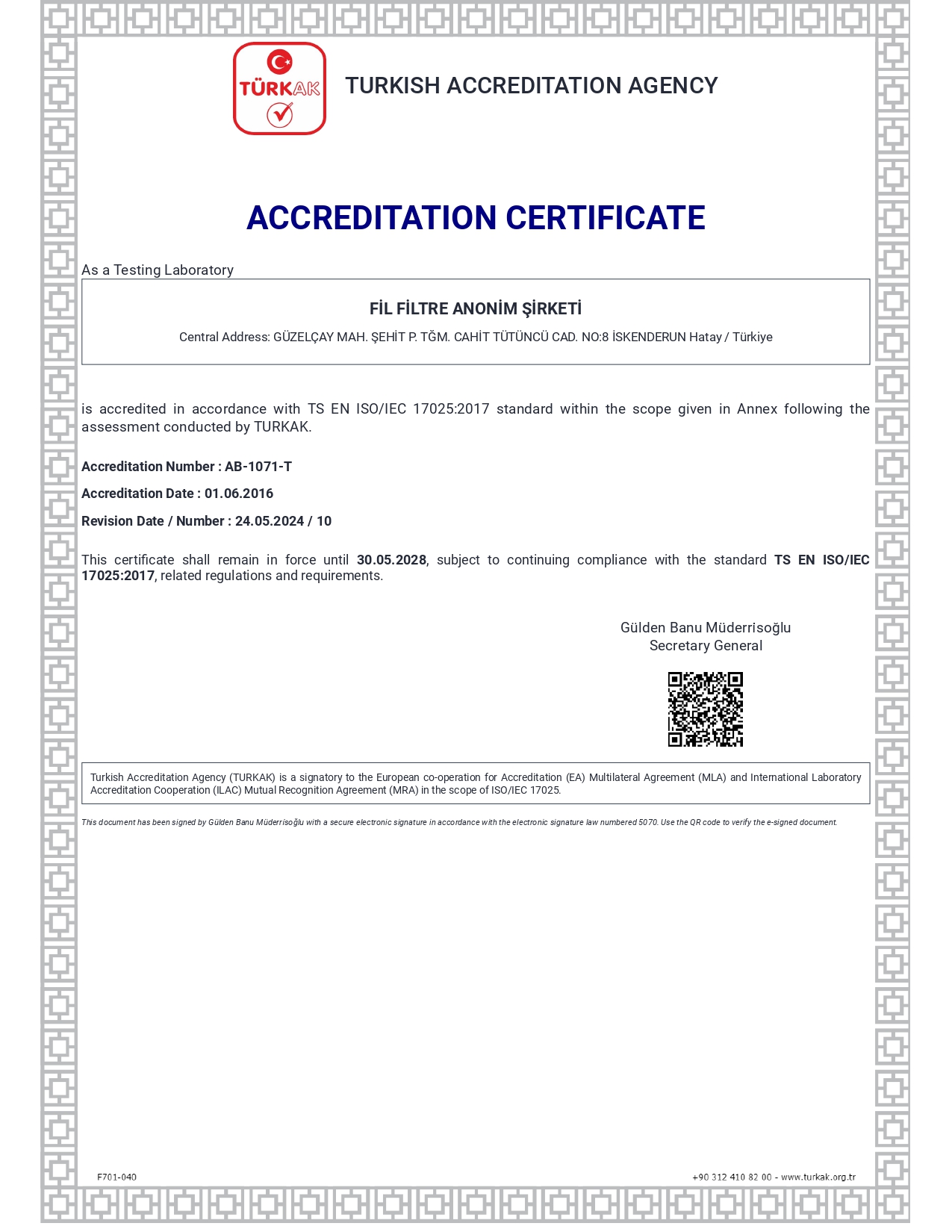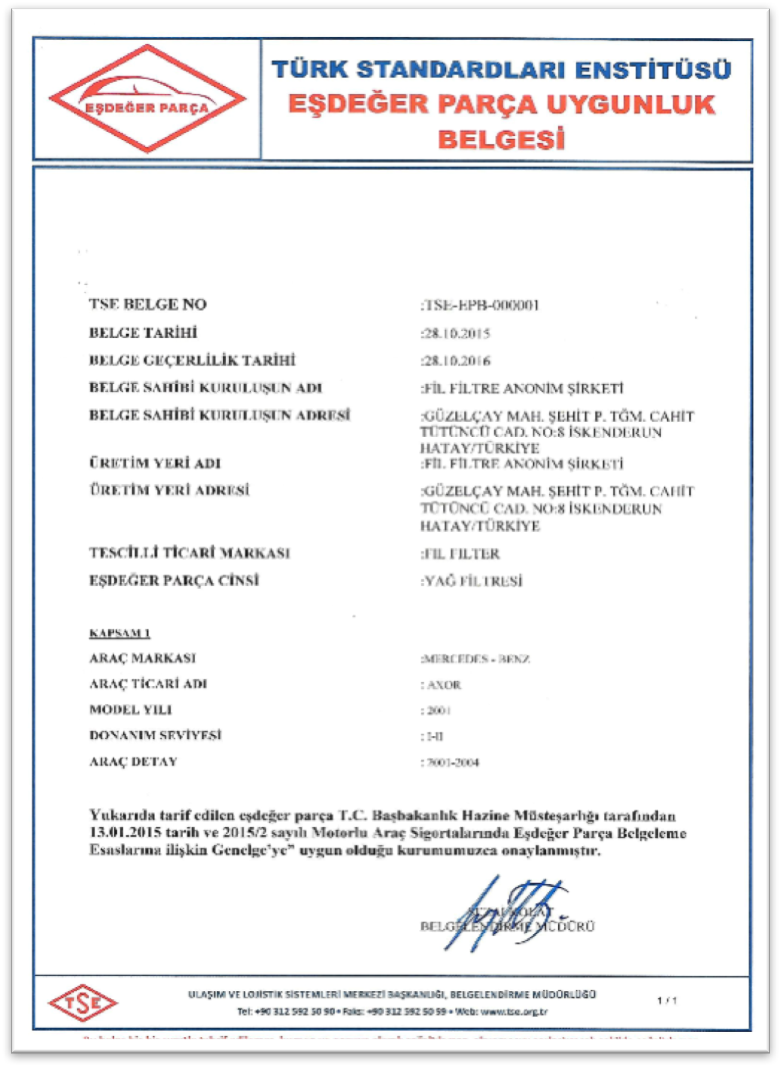The Importance of Fuel Filtration
Today, the engines are designed to generate more power with low fuel consumption with a functioning fuel system and clean fuel.
The basic requirement for engine problem-free operation is a healthy fuel system and clean fuel.
In order for the fuel system to operate properly and the engine to generate a lot of power with less fuel, it is essential that the fuel circulating in the system must be clean.
50% of the fuels used do not meet the ISO 4406 18/16/13 (2500 particles / 1ml / 4μm ©) fuel cleaning standard.
Clean fuel is obtained by cleaning the dirt (dust, rust, organic pollutants) and water in the used fuels with high efficiency.
The biggest expenditure when driving is the fuel consumption, making this consumption efficient and protecting the system is an important gain.
Filtration Properties
Sealing elements in the filters are very important because the fuel used in the engines is flammable and threatens human life. The filter must be produced in precision molds in technological processes and then offered for sale after passed through 100% test with test equipment.
EfficiencyEfficiency is that the filter used in the system can filter in the range of 1-10 microns without creating resistance and can separate and retain 99% of water.
Water Separation and Water RetentionThe new generation filters manufactured with technological materials separates water and shows dirt with high efficiency. They also retain the dirt depending on the amount of separated water.
Pressure DifferencePressure difference can also be referred to as resistance against to flow.
The filtration material, which must be of high quality, should have a high dirt and water retaining capacity without producing a high pressure difference in both the high efficiency and the expected life.
Resistance to Moisture and Heat ChangeIt is possible to have water in diesel fuel in particular, and due to the intense heat exchange in diesel fuel systems, technological materials and coating methods resistant to water, corrosion and heat changes must be used in filter materials.
Filter LifeShelf Life : It has a minimum shelf life of 5 years in its package without humidity, at -10 +40 C temperature range, without exposure to water and direct sunlight.
Life Cycle : During fuel filtration, the filter retains impurities. This leads to clogging of the filter in time.
Therefore, the maintenance and replacement period that the vehicle manufacturers have reported for the replacement of the filters must be observed.
If the end-of-life, clogged filter is not replaced, the system will not be able to draw enough fuel.
It is ensured that the water collected in the filter - which has also a function of retaining water - must be discharged.
The fuel variants and additives to be used other than fuel type recommended by the vehicle manufacturer lead to inability to perform healthy filtration and damage the system.
- Poor Quality Fuel Filtration and Negative Results
- Only price-oriented poor quality material
- Design based on insufficient knowledge
- Poor manufacturing conditions
- Releasing products to the market without testing due to lack of laboratory
- Attention; Do not risk yourself, your car, and your neighborhood !
- Fire danger
- Excessive fuel consumption
- Blockage or boiling of injectors
- Clogging of the fuel system
- Loss in engine performance
- Increase of engine noise
- Increase of exhaust emission values

